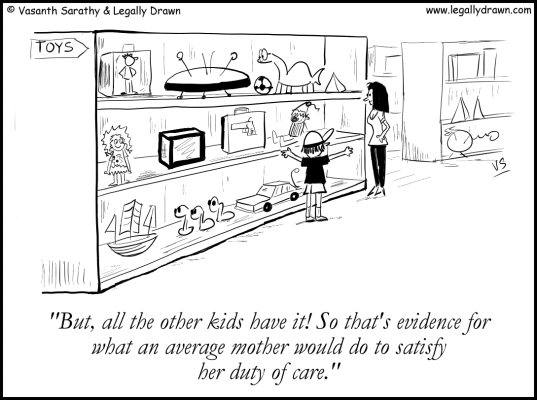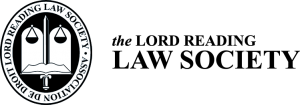NEWSLETTER – September 2011
Robin Schiller, President
Allen Mendelsohn, Dorith Toledano and Larry Markowitz, Editor(s)
President’s Message
Robin Schiller
Honourable Judges, Members and Friends,
I am both delighted and excited to be your President this year.
We had a fantastic season last year under the direction of our immediate Past President, David Stolow. His shoes will be hard to fill but my team and I promise to do our very best.
I had the privilege of participating in the Journée du Barreau on September 8, 2011 and I am happy to report that the Bar of Montreal is thriving under the leadership of our new Bâtonnière Elizabeth Greene. Quebec’s Justice Minister Marc Fournier was present to advise us that significant changes to our justice system will be taking place forthwith. In addition to changes to the Small Claims Court threshold, there will be significant changes to the Code of Civil Procedure. Minister Fournier hinted that mediation and early court intervention will play a significant role in our new Code.
The 2011-2012 season is promising to be both educational and inspirational as, for the first time in the Society’s history, half the speakers will be women. Given that this is the 70th anniversary of the admission of women to the Bar of Quebec, I am particularly proud to be a part of this initiative.
Please note the following upcoming events in your calendar:
September 20, 2011 – on the occasion of the annual Alan B. Gold Advocacy Lecture, we are delighted to welcome The Honourable Mr. Justice Allan R. Hilton of the Quebec Court of Appeal. Mr. Justice Hilton will address the issue of: “Language Rights of Accused in Canada”. The evening promises to be particularly special as we will be bestowing the Society’s highest honour, the Past Presidents’ Medal, upon Me Casper Bloom.
October 27, 2011 – on the occasion of the annual Henry Steinberg Memorial Lecture, the Associate Dean, Graduate Studies of McGill University, Professor Rosalie Jukier, will be addressing us. Her topic is: “‘Backstage at the Palace’: Analyzing Judicial Methodology in Mixed Legal Systems and Why Judges Do What They Do”.
November 30, 2011 – on the occasion of our annual Human Rights Lecture, we have the privilege of welcoming The Honourable Mr. Justice Ian Binnie of The Supreme Court of Canada. Justice Binnie’s topic will be: “Corporate Complicity in Abuse of Human Rights”.
Please note the change in venue. Our first event will be held at The Shaar Hashomayim Synagogue located at 425 Avenue Metcalfe, Westmount, Quebec as we continue to search for a new, permanent, home. Valet Parking will be provided.
Finally, I would like to introduce you to your new executive:
Robin Schiller – President
Mara Greenstone – First Vice-President and Program Chair
Heather Michelin – Second Vice-President & Continuing Legal Education Certification Chair
Lawrence Glazer – Treasurer
Jonathan Gordon – Recording Secretary
Robert Rapp – Liaison Chamber of Notaries
Hershie Frankel – Membership Chair
Allen Mendelsohn – Communications
Steven Slimovitch – Sponsorship
Justice Carol Cohen – Liaison Bench
Howard Tatner – Liaison Bar
Frank Schlesinger – Human Rights
Elliot Lifson – Industry
Alyssa Yufe and Lawrence Witt – Liaisons Young Bar
David R. Franklin and Leon Jedeikin – International Relations
Morton Bessner – Archives
David Stolow – Immediate Past President
Morris Chaikelson – Executive Director
Thank you all for your continued support of this very worthy organization. I am looking forward to seeing you on September 20, 2011.
Yours very truly,
Robin Schiller, President
The Lord Reading Law Society
Review of our May 5th Dinner-Meeting with Supreme Court Justice Thomas Cromwell
Larry Markowitz
Sound Professional Judgment: The Lawyer’s Most Important Attribute
On May 5th, the Lord Reading Law Society had the honour of hosting Canada’s newest Supreme Court Judge, Mr. Justice Thomas Cromwell, who enlightened us with a philosophical presentation on the importance of lawyers exercising sound professional judgment, while regaling us with humorous anecdotes from the world of the judiciary.
Mr. Justice Cromwell was introduced by long-time Society member – and his Supreme Court colleague – Mr. Justice Morris Fish, who began his introduction by exclaiming, “It’s wonderful to come home!” in reference to the fact that he has been a member of the Society since 1959.
We learned from Mr. Justice Fish that Mr. Justice Cromwell is a true Renaissance man, as well as a “man of wisdom and wit”. A graduate of Queen’s University in both music and law, Mr. Justice Cromwell is, in his spare time, a cordon bleu chef and a musician.
During his speech, which we later learned coincided with his birthday, Mr. Justice Cromwell spoke of how sound practical judgment is a basic attribute of a good lawyer.
Contrary to common understanding, the most legally significant decisions are not made by judges, but rather by lawyers. Counsel chooses which retainers to accept and they advise clients whether to pursue cases before the courts. These sorts of significant decisions often relate to ill-structured problems filled with contingencies and unknowns. A good lawyer needs to know how to weigh the variables with which they are faced. A good lawyer must exercise discretion by choosing between more than one legally correct solution. These decisions call for sound professional judgment, which is even more important than legal acumen.
A good lawyer takes an empathetic, yet detached, view of circumstances. Good judgment involves weighing competing considerations responsibly and figuring out which consideration should take precedence. This skill is what sets wisdom apart from mere knowledge. A good lawyer is a problem-solver and a peacemaker. Lawyers need wise judgment to mediate between conflicting values in the service of their clients. If a lawyer is unduly preoccupied by zealous advocacy, they might not be serving their clients’ long-term interests. A good lawyer is not only argumentative, but is also a peacemaker and a counsellor.
Wise judgment originates from proper training of students in law schools, as well as codes of conduct that apply to lawyers. “Do we train lawyers sufficiently to exercise this sort of good judgment?” asked Mr. Justice Cromwell.
A talented lawyer should keep the client’s perspective and goals in mind, but should not be unresponsive or paternalistic towards the client. In each legal matter, there are calculated risks. The lawyer must inform their client of these considerations and provide them with meaningful choices. However, the lawyer should be careful not to bombard the client with too much information, as that would be overwhelming to the client and possibly confusing and stressful.
Mr. Justice Cromwell reminded us of the centrality of ethics to sound professional judgment. Codes of professional conduct only provide us with broad principles. In other words, there is often room for discretion on the part of lawyers. The exercise of that discretion requires ethical judgment.
We need to inculcate a culture in our profession that insists upon the exercise of sound judgment. Indeed, sound judgment is the most important component in the toolbox of a lawyer.
Mr. Justice Cromwell was thanked by Madam Justice Carol Cohen.
News from the Mishpuchah
Mazel Tov
- To Executive member Hershie Frankel on the Barreau honouring him for 50 years of service, as well as to all other Society members who were so honoured: Mark Abramowitz, Seymour Avrith, Brahm Gelfand, Yoine Goldstein, Gerald Green, Martin Gross, Abraham Gurman, Leon Jedeikin, Joel Pinsky, and Edwin Winston
- To First Vice-President Mara Greenstone on the birth of her son
- To Neil Hazan on the birth of his son
Condolences
- To the family of Gary Nachshen, who passed away on March 24
Society Humour




